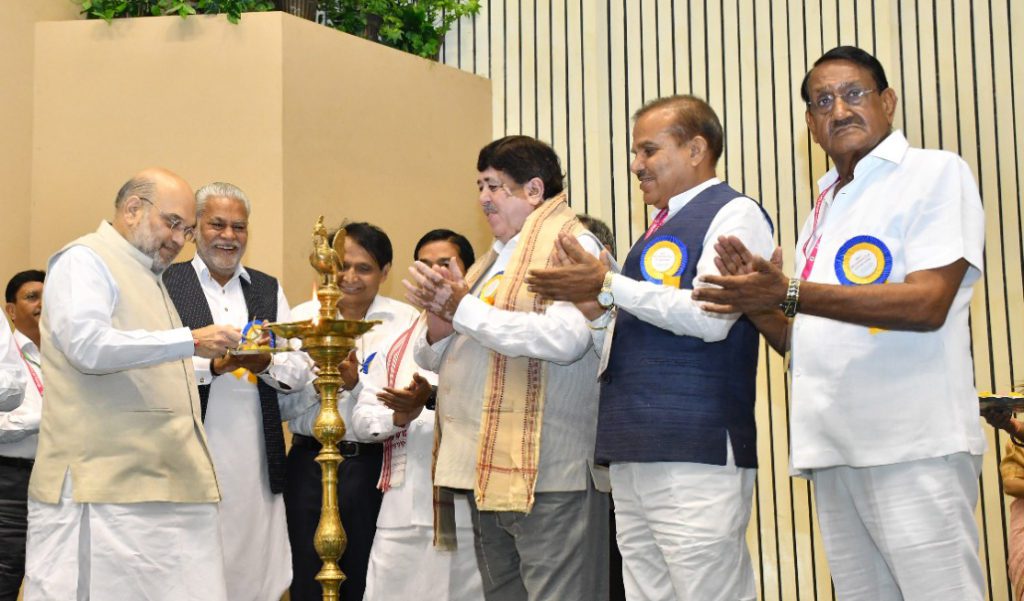Speaking on the occasion of an event to mark 100th International Day of Cooperatives, organized by Ministry of Cooperation and NCUI at Vigyan Bhawan in New Delhi on Monday, Union Minister of Cooperation, Amit Shah said that PACS would soon be converted as the nerve centre of all development activities happening in rural areas.
“Computerization of PACS, as cleared by the Cabinet is ok for accounting and transparency purposes but the main focus is to make PACS multipurpose and multi-dimensional”, said Shah. They would perform at least 25 different kinds of activities including selling agri inputs, distributing fertilizers or seeds, cold-storages, maintaining records of life and death certificates, even operating a petrol pump, etc, said Shah sharing his vision of the upcoming PACS.
Shah said PACS is a State subject and the Center has sent model by-laws in respect of PACS to the States for their suggestions. He also said that soon these (Model By-laws) will be sent to cooperative societies for suggestions.
Shah compared the Co-op Model with both Command Economy and Market Economy and felt the latter two represent an extreme stand while the co-op model is a middle path which could be beneficial for the poor and downtrodden.
The minister was indeed in his brilliant form and his speech touched both the present and future of cooperatives. He said a span of 100 years leads to the stage of youthfulness in the growth of an idea. Co-op is in its youth today and it must work hard for the next 25 years so that when India celebrates its centenary we are at the top in the world.
Lauding the Modi govt for freeing about 70 crore people from the basic needs of food and shelter, Shah said
Shah also talked about Amul, IFFCO and Kribhco and shared his plan for them. He said in order to promote organic farming through cooperatives so that farmers get more than 30% profits on their organic produce, the government is making AMUL a nodal agency which will undertake certification of the organic produce through developing modern laboratory, and also market its own brands along with organic products of other coops worldwide.
Another major announcement by the Minister was that the Ministry in association with NCUI will soon form a Cooperative University to popularize cooperative education in the country. All the extant co-op training centres would be affiliated to this University and the modern PACS would hire only those who have graduated from here, said Shah.
He said the government has worked to connect IFFCO and KRIBHCO for seed reforms. He said that the government has allowed cooperative societies to purchase through GEM according to recent decisions. The Ministry of Cooperation is also preparing a database of co-ops to know the sector and areas where we need to focus more. Once it is ready we will launch a co-op expansion program next year.
habit of saving, then they will never face the problem of generating funds”, he remarked.
Suresh Prabhu, Former Union Minister in his speech said that cooperatives with a mission for 2030 should focus on climate change, job creation at local level, and agro-bio-diversity for which there should be policy support from the Government.
B.L. Verma, Union Minister of State for Cooperation in this speech highlighted the new initiatives of the Ministry.
Earlier, Dileep Sanghani, President, NCUI, during his presidential address highlighted the recent initiatives of NCUI like NCUI Haat, which is providing a selling platform for products of lesser known cooperatives/SHGs, starting of an Incubation Centre, and a Skill Development Centre, etc.
Dr. Sudhir Mahajan, Chief Executive, NCUI proposed a vote of thanks on the occasion.
